The overlap between when the European soccer season begins (this season: Aug. 8) and when the summer transfer window closes (Aug. 31) is ripe for confusion and overreaction; we're responding to early impressions from a given team when we don't even know who's going to be on their roster for the last 90% or so of the season.
- Transfer Grades: Rating every major summer move
- Ogden: What top clubs still need to do
- Carter: Players at big clubs in need of a move
Even before four of Europe's Big Five leagues got underway recently (the fifth, Italy's Serie A, starts this coming weekend), though, we were getting a pretty good idea of the stakes for the rest of this transfer window. While certain clubs have already played their cards and made big moves, others are still looking to wheel and deal.
With about two weeks left before the window closes, let's look at the teams that either haven't fully addressed last year's weaknesses or have simply seen their roster get worse since the end of the 2020-21 campaign. We can't say they've had the worst offseasons yet because we've barely seen them on the field yet, but be it because of financial difficulties or different pursuits, we know who still has some work to do on paper.
Teams that didn't address their needs or get definitively better on paper
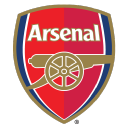
10. Arsenal
Key acquisitions: DF Ben White (Brighton), MF Martin Odegaard (Real Madrid), MF Albert Sambi Lokonga (Anderlecht), DF Nuno Tavares (Benfica)
Key departures: MF Joe Willock (Newcastle)
Shot quality was one of Arsenal's biggest issues last year -- they were 11th in the Premier League in xG per shot. With aging stars Pierre-Emerick Aubameyang and Alexandre Lacazette both a year older -- and, if you believe the rumor mill (though anytime Barcelona is involved, you probably shouldn't), potentially on the way out -- Arsenal desperately needed another attacking option to help with both this and the fact that they didn't pressure opponents well enough up the pitch.
If early signs are any indication, Lokonga could help in terms of pressure. Playing in place of the injured Thomas Partey in last Friday's 2-0 defeat at Brentford, he was all over the pitch. But the vast majority of this window's transfer budget will end up having gone to White and Odegaard, who spent the last half of 2020-21 at Arsenal. They appear to have dramatically overpaid for White considering he was merely solid for Brighton last season and is already almost 24 years old, but White and Odegaard are quality options in the possession game and, including Lokonga and Tavares, it actually appears Arsenal are building for the future.
Considering Arsenal's biggest problem of late has been a dreadful lack of long-term thinking, that's a win! But this list is about who did and didn't get better for this coming season, and it's appearing more and more likely that last year's biggest issue could be an even bigger one this time around.
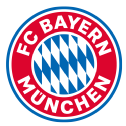
9. Bayern Munich
Key acquisitions: manager Julian Nagelsmann (RB Leipzig), DF Dayot Upamecano (RB Leipzig), DF Omar Richards (Reading)
Key departures: manager Hansi Flick (German national team), DF David Alaba (Real Madrid), DF Jerome Boateng (free agent)
One of the hallmarks of Flick's Bayern system was a dangerously chaotic high defensive line. Bayern pinned opponents in their half of the pitch, unloaded non-stop, high-quality scoring chances ... and occasionally gave up extremely high-quality chances in transition as well. It was great from a watchability standpoint, but it cost them dearly in their Champions League quarterfinal exit against Paris Saint-Germain, and it gave them a bit more work to do in league play -- they allowed the second-fewest shots in the Bundesliga but the second-worst xGOT/SOT average (post-shot xG for shots on target divided by total shots on target).
If you were getting a shot off against Bayern, it was probably a good one.
The club did as well as possible in replacing Flick with Nagelsmann, whose Leipzig squad was solid in possession, but was also the only Bundesliga club to allow under one goal per match. You could call that breaking even if you're generous to Nagelsmann, but at best Bayern broke even from a personnel standpoint, losing Alaba, letting Boateng go and only bringing in Upamecano. They still have depth issues in the back -- immediately exacerbated by injuries to right-back Benjamin Pavard and centre-back Lucas Hernandez -- and in the midfield.
Bayern remain Bundesliga favorites because of their absurd attacking personnel -- and they've already beaten rivals Borussia Dortmund in this young season -- but it's really difficult to make the case that they're better off now than they were when last season ended.
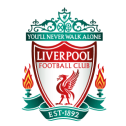
8. Liverpool
Key acquisitions: DF Ibrahima Konate (RB Leipzig)
Key departures: MF Georginio Wijnaldum (PSG), FW Harry Wilson (Fulham)
Liverpool have done as good a job as any club of sticking to a long-term plan, but that approach got tested severely last season when almost literally every centre-back on the roster was lost to a long-term injury. They had to make emergency acquisitions of Schalke's Ozan Kabak (on loan) and Preston North End's Ben Davies in the January transfer window, only to end up leaning on inexperienced Nat Phillips, Rhys Williams and Kabak (whom they elected not to sign when the loan was over) down the stretch.
- ESPN+ viewers' guide: LaLiga, Bundesliga, MLS, FA Cup, more
- Stream ESPN FC Daily on ESPN+ (U.S. only)
- Don't have ESPN? Get instant access
Despite an aging attack and the hole in the midfield left by Wijnaldum's departure (and veteran Xherdan Shaqiri possibly leaving soon as well), the club took a "let's make sure that doesn't happen again" approach, using all of its transfer cash to date on Konate. In one way, that makes sense: They almost missed the Champions League last year because of their central defense, after all. But it's still a pretty big risk since, with two weeks left in the window, they still have those other holes to fill.
Virgil van Dijk and Joel Matip -- two of last year's many injured stars -- lined up at centre-back in the season-opening win against Norwich City, meaning Konate is still waiting to make his official debut. While the Reds most certainly have enough in the back now, is that still the case elsewhere?
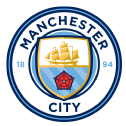
7. Manchester City
Key acquisitions: MF Jack Grealish (Aston Villa)
Key departures: FW Sergio Aguero (Barcelona), DF Eric Garcia (Barcelona)
Without a doubt, Pep Guardiola is going to have a lot of fun with Grealish, and as De Bruyne closes in on being fully fit, City might have the two most exciting creatives in Europe on the field at the same time moving forward. Even if there are growing pains as Grealish learns his place, it's going to be really fun to watch if and when he hits fifth gear.
Yet creativity wasn't an issue for City last season -- the center-forward position was. Aguero was steadily hurt for most of his last season in Manchester, and Gabriel Jesus missed most of the first half of the season as well. City overcame this with contributions from pretty much everyone, and even got a goal-scoring binge from midfielder Ilkay Gundogan while they were surging to the top of the table. But there's a reason why their pursuit of Tottenham Hotspur's Harry Kane has been one of the major plot lines of this offseason.
With two weeks to go, it's still unclear if or when that pursuit might succeed. And if it doesn't, do City have a backup plan? They've lost each of their last three competitive matches -- last season's Champions League final, the 2021 Community Shield and Sunday's season opener against a Kane-less Spurs -- by 1-0 margins. If Kane doesn't move to town soon, are they comfortable riding with Jesus and Ferran Torres at centre-forward? Should they be?
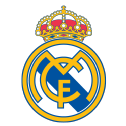
6. Real Madrid
Key acquisitions: DF David Alaba (Bayern Munich)
Key departures: DF Raphael Varane (Manchester United), DF Sergio Ramos (PSG)
Like Bayern, Real Madrid lost two starter-level central defenders and replaced them with only one. But unlike Bayern, Los Blancos had a lot more squad question marks heading into the offseason. Their technical precision is still second-to-none, but their starting lineup in Saturday's season-opening win over Deportivo Alaves featured players aged 35 (Luka Modric), 33 (Karim Benzema), 32 (Gareth Bale), 31 (Nacho), 30 (Eden Hazard and Lucas Vazquez) and 29 (Alaba, Casemiro and Thibaut Courtois).
They played well, obviously, winning 4-1, but while we know they will make a big move for PSG's Kylian Mbappe whenever they think they might have the money to do so, it's not likely that push is going to come in the next two weeks. This lineup was bordering on too old last season, and with Bale's return from loan, it's even older now. If age leads to injuries and inconsistent form, it will be difficult for them to match even last year's semi-disappointing level.
Got plainly worse on paper

5. Lyon
Key acquisitions: manager Peter Bosz (Bayer Leverkusen), DF Henrique (Vasco de Gama)
Key departures: manager Rudi Garcia, FW Memphis Depay (Barcelona), DF Joachim Andersen (Crystal Palace), MF Jean Lucas (Monaco)
For two years, Rudi Garcia struggled to turn on-paper quality into actual results. In 2019-20, Lyon ranked third in xG differential, but finished seventh in the league during an abbreviated season. In 2020-21, they ranked first in xG differential, but still finished fourth, and they missed out on Champions League play for the second straight year.
Lyon's offseason moves basically entailed replacing Garcia with Bosz (who was fired from Bayer Leverkusen in March after falling out of the race for a Champions League spot) and Depay, last season's team leader in both goals and assists, with Moussa Dembele. Dembele scored twice in Lyon's Champions League quarterfinal upset of Manchester City in 2020, but he scored exactly half that in 21 league appearances for both Lyon and Atletico Madrid, with whom he spent the last half of 2020-21 on loan. It was hard calling either of these moves upgrades, and two matches into the season -- a 1-1 home draw with Brest and a blowout loss to Angers (it was 3-0, and it felt like 6-0) -- they haven't done anything to prove otherwise.
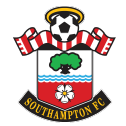
4. Southampton
Key acquisitions: FW Adam Armstrong (Blackburn), DF Romain Perraud (Brest)
Key departures: FW Danny Ings (Aston Villa), DF Jannik Vestergaard (Leicester City), DF Ryan Bertrand (Leicester City)
In a vacuum, each of Southampton's primary moves this offseason made sense. Pulling nearly $60 million combined for two 29-year-olds (Ings and Vestergaard) is solid business, and both the 23-year-old Perraud and 24-year-old Armstrong were successful for smaller clubs last season. (Armstrong was more than successful: He scored 28 goals for a solid, second-division Blackburn squad and scored for the Saints in their season opener as well.)
Without any further moves, however, they're still at a net loss. Even if Armstrong ends up working out nicely, the Saints have broken even at best up front, and they're staring at a hole in the back of the lineup. The centre-back duo of Jack Stephens and Mohammed Salisu got ripped apart by Everton and while Jan Bednarek is also an option in the back, it appears Southampton might still be looking for a Vestergaard replacement. Without one, it could be a long season for the team that already had accumulated the fewest points in the Premier League after Feb. 1 last year.
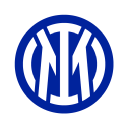
3. Inter Milan
Key acquisitions: manager Simone Inzaghi (Lazio), MF Denzel Dumfries (PSV Eindhoven), MF Hakan Calhanoglu (AC Milan), FW Edin Dzeko (Roma)
Key departures: manager Antonio Conte, FW Romelu Lukaku (Chelsea), DF Achraf Hakimi (PSG), FW Matteo Politano (Napoli), DF Ashley Young (Aston Villa)
Considering the degree of difficulty, Inter have done alright this offseason. If you have to shed payroll and raise funds via big transfers (and lose one of the best managers in the world in the process), you could do worse than adding veterans like Inzaghi and Dzeko, along with high-end creators like Calhanoglu and, potentially, Dumfries. While this version of Inter might struggle to advance past the Champions League group stage (depending on the draw, of course), there's enough talent there to potentially compete for a Champions League spot even in a crowded Serie A upper tier.
Inter still has a sturdy back line and stars like Lautaro Martinez and Nicolo Barella, but let's face it: There's nowhere to go but down after you lose Conte, Lukaku and Hakimi. They should remain interesting and competitive while paring down their debt issues, but their odds of a repeat Scudetto probably aren't great.
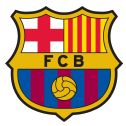
2. Barcelona
Key acquisitions: FW Memphis Depay (Lyon), FW Sergio Aguero (Manchester City), DF Eric Garcia (Manchester City), DF Emerson Royal (Real Betis)
Key departures: FW Lionel Messi (PSG), DF Junior Firpo (Leeds United)
To phrase the above section slightly differently, "key departure: the greatest scorer of all time." Even more than Inter, Barcelona still have massive talent on the payroll and probably aren't in danger of falling too far down the LaLiga table. They still have "this is how it's done here" veterans like Gerard Pique, Jordi Alba and Sergio Busquets, they still have high-end young talent in the form of Frenkie de Jong Pedri, Ansu Fati (when 100% fit) and others. And they still have expensive scoring options in players like Antoine Griezmann, Depay and perhaps Martin Braithwaite, who has been the subject of transfer rumors but scored twice in the season opening win against Real Sociedad.
But they don't have Messi. And they won't have Aguero anytime soon, either, due to an injury. Their ceiling had already sunk a bit in recent seasons, and there's almost no way for Barca to prevent it from sinking even further this season.

1. Lille
Key acquisitions: manager Jocelyn Gourvennec, MF Amadou Onana (Hamburg)
Key departures: manager Christophe Galtier (Nice), MF Boubakary Soumare (Leicester City), GK Mike Maignan (AC Milan), FW Luiz Araujo (Atlanta United)
To finish higher on this list than The Team That Lost Messi, you had to have had a pretty sketchy offseason. Lille did so. Les Dogues made an inspired run to the 2021 Ligue 1 title thanks to the stingiest of stingy defenses: 0.61 goals allowed per match (first in the league), 0.83 xG allowed (first), 0.09 shots allowed per possession (second) and 0.09 xG allowed per shot (first). But this offseason, their magical defensive manager left for what is, on paper, a lesser job, and two of the primary components of that stingy defense -- a rock-solid goalkeeper (Maignan) and a defensive midfielder key to snuffing out transition opportunities (Soumare) -- not only left, but left for a mere $36 million combined.
On top of that, they hired a confusing replacement in Gourvennec, who hadn't managed in two years and whose only real success came in leading Guingamp to the 2014 Coupe de France and advancing them to the knockout stages of the 2014-15 Europa League. Maybe his plan will bear fruit, but it hasn't so far: Lille have allowed seven goals in their first two Ligue 1 matches -- as many as they allowed in their last 12 matches last season. They needed two late goals with a man advantage to come back to draw Metz, then got stomped at home, 4-0, by Galtier's Nice.
Lille did take down a second-choice PSG squad to win the Trophee des Champions on August 1, but they're looking up at most of the league at the moment. Lille is a Pot 1 team for next week's Champions League draw, and it probably goes without saying that most teams in Pots 2-4 will be hoping to land in their group.
